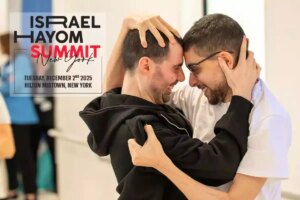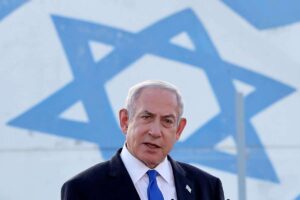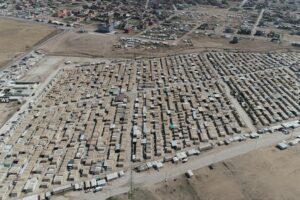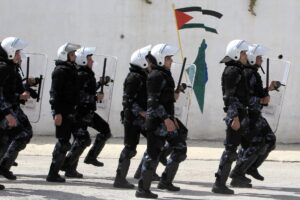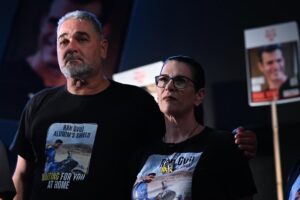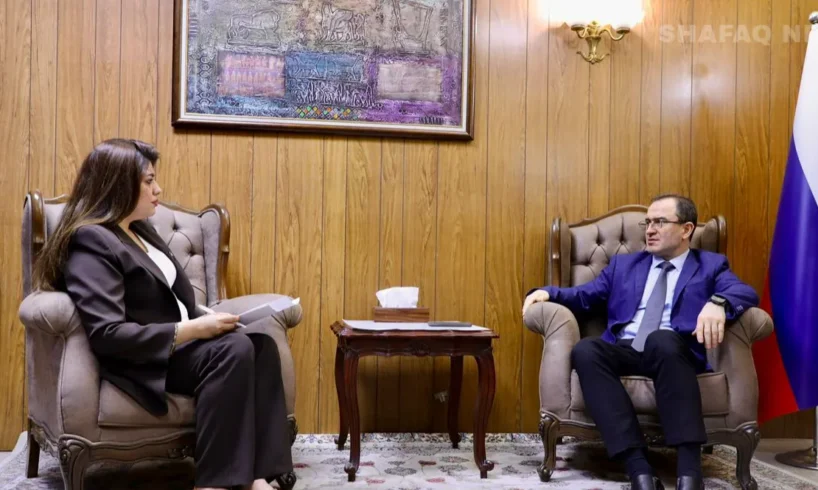
Shafaq News – Baghdad
Amid sweeping geopolitical shifts across the
Middle East, Russia’s envoy in Baghdad speaks with a calm but firm tone that
blends confidence with pragmatism.
From a modest residence in the capital’s
al-Mansour district, Ambassador Elbrus Kutrashev shared with Shafaq News his
view of a region in transformation — and of Iraq’s delicate effort to balance
between global powers without compromising its independence.
Behind the ambassador’s measured diplomacy lie
clear messages about the complex web of Iraq’s relations with Washington and
Tehran, the future of the Popular Mobilization Forces (PMF), the evolution of
Iraq’s political system, the role of Kurdistan in Russia’s regional strategy,
and Moscow’s renewed engagement in Syria.
Kutrashev described the partnership between
Moscow and Baghdad as “steady and expanding,” covering the fields of economy,
defense, energy, education, and culture.
He noted a “mutual desire among public and
private institutions in both countries to advance cooperation through quiet,
practical projects,” declining to elaborate further.
Although the planned summit between President
Vladimir Putin and Prime Minister Mohammed Shia al-Sudani has been postponed,
he said that “institutional mechanisms of cooperation remain active and
function regularly.”
Between Washington and Tehran — Moscow Observes
The ambassador emphasized that Russia is not a
player in Iraq’s balancing act between the United States and Iran.
“The confrontation between Washington and Tehran
sometimes unfolds on Iraqi soil and at the expense of its stability,” he noted.
“Moscow is not part of that contest.”
He voiced support for Baghdad’s strategy of
diversifying partnerships and avoiding alignment with any single axis, adding
that Iraq has faced “intense Western pressure since 2022 to sever ties with us
over the Ukraine conflict — yet it stood firm and preserved its independent
decision-making. That is a sign of political maturity.”
On the issue of armed factions, Kutrashev said
Russia prefers neutrality: “These groups are an internal matter. No foreign
state has the right to interfere. Russia takes an official position only when
the Iraqi government formally requests it.”
He acknowledged that the PMF is part of Iraq’s
state institutions, created under exceptional circumstances, describing the
delay in legislating the PMF Authority Law “under external pressure” as
regrettable. Moscow, he stressed, “rejects interference in the sovereign
affairs of any nation.”
Kutrashev also offered a broader reflection on
Iraq’s political system, describing it as “a product of extraordinary
circumstances that cannot be judged by normal standards.”
“Russia experienced something similar,” he
recalled. “We adopted our constitution after the 1993 crisis in Moscow when
tanks shelled the parliament. We are still refining that system today.”
He added, “Iraq’s political order emerged under
foreign occupation and severe insecurity, but it has evolved. Compared to
twenty years ago, the situation is undeniably better.”
Weapons, Investment, and Energy Cooperation
In the defense field, the ambassador confirmed
that Moscow continues its cooperation with Iraq “despite the US CAATSA
sanctions law and related pressures.”
“Russia supplies Iraq with the
defensive weapons it needs — unlike Washington, which imposes political
restrictions on the type of armaments,” he remarked.
According to him, the obstacle is not financial,
“but the foreign interventions that prevent Iraq from building a strong
air-defense system.” He asserted that “Iraqis prefer Russian arms because they
are more effective and cost-efficient.”
Kutrashev said Russian investment in Iraq has
exceeded $20 billion, with new contracts expected in the coming months to boost
oil output and improve energy efficiency.
“Cooperation goes beyond oil. It includes
education, culture, energy, and infrastructure.”
Commenting on US objections to Iraq’s
gas-transit projects with Kazakhstan and Iran, he argued that “such opposition
reflects an American policy against Tehran that also harms Iraq.”
“The only legitimate sanctions
are those issued by the UN Security Council,” he stressed. “Unilateral US
measures are illegal. Iraq has every right to develop its economic relations
with whomever it chooses.”
Kurdistan — From Mahabad to a 21st-Century
Partnership
Recounting the roots of Russian-Kurdish
relations, Kutrashev referred to the aftermath of the short-lived Republic of
Mahabad in 1946, when Kurdish leader Mulla Mustafa Barzani and his fighters
took refuge in the Soviet Union.
“We hosted more than 500
Kurdish fighters for a decade. Many studied in our schools and even married
Russians before returning home,” he said, describing the episode as “a symbol
of historic friendship between Russians and Kurds.”
Moscow, he explained, regards Kurdistan as an
integral part of Iraq, and all Russian activities there are conducted with
Baghdad’s consent.
At the same time, he acknowledged the Kurdistan
Region as “an important economic partner and a gateway for regional
cooperation.”
Russian projects in Iraqi Kurdistan are valued
at around $2 billion, with potential for expansion. Kutrashev said Russia
“welcomes the development and export of Kurdistan’s gas to Europe and does not
see it as a threat to its own interests.”
The US Presence — Withdrawal or Redeployment?
On the continued US military presence in Iraq,
the ambassador argued that “what is happening is not a full withdrawal but a
redeployment.”
“Some forces and equipment are being relocated
to Kurdistan,” he explained, “which does not signify the end of America’s
presence in Iraq.”
He added that Washington “has no intention of
relinquishing its influence in the Middle East. Its presence in Syria relies on
bases in Iraq because there are no alternative logistical corridors.”
“Even if US forces leave the
south,” he concluded, “they will remain in the north to maintain access to
their installations in Syria and the Gulf.”
Read more:EXPLAINER: From the fight against ISIS to US withdrawal talks
Iraqis in the Ukraine War
Kutrashev addressed reports about Iraqis
fighting alongside Russian forces in Ukraine, saying that media accounts of
“hundreds or thousands” of such volunteers are “greatly exaggerated.”
“There are about 600,000
Russian soldiers on the front lines — this is a national war fought by our own
people.”
He confirmed only a few isolated cases of Iraqis
who joined the Russian army. One of them, he recalled, “visited our former
military attaché on his return to Iraq to resolve personal matters and later
expressed his intention to go back to the front.”
The embassy, he added, “issued visas for the
relatives of two Iraqis who were killed in the conflict — these are the only
officially handled cases.”
“At the beginning of the war,
dozens of Iraqis asked to enlist, but we declined because no system allowed
foreign recruitment at that time.”
“Later, a limited and complex mechanism was
created requiring nomination by an accredited entity and approval by the
Russian Ministry of Defense. Joining the army remains almost impossible for
foreigners.”
Russia, he emphasized, “does not need foreign
fighters; our military provides sufficient incentives for Russian volunteers —
high salaries, compensation, and social benefits. If the door were open,
thousands of Iraqis might have gone, but Russia relies on its citizens.”
In contrast, he said, Ukraine’s army includes
large numbers of foreigners, including NATO officers and experts — “some have
been killed or captured.”
“Russia Is Not the Soviet
Union” and the “New Middle East” Vision
Kutrashev rejected comparisons between
present-day Russia and the Soviet Union, particularly regarding ties with Iraq
and the broader region.
“The world has changed drastically. China is now
the leading economic power. Moscow is no longer alone facing Washington as in
the 1970s,” he remarked.
“We may not have the same
economic capacity as the Soviet Union, but we uphold the same principle —
supporting Arab friends and partners without hidden agendas.”
The ambassador dismissed the notion of a “New
Middle East” as “an American-made idea that has failed.”
“These unilateral projects do not reflect the
interests of the region’s peoples but serve external powers,” he said, calling
the outcomes of the so-called Arab Spring “disastrous.”
“One-third of Arab states are
now trapped in crises or civil wars,” he noted. “We are not advocating the
return of old regimes, but today’s reality is far worse than that of the former
Middle East.”
Read more: The Desperate and the Damned: Why thousands of Iraqis are fighting in Ukraine
Syria After al-Assad — Between al-Sharaa and
Moscow
Kutrashev addressed the political shift in Syria
following the rise of transitional President Ahmad al-Sharaa, stressing that
Moscow’s relationship with the new government “is not tied to Bashar al-Assad.”
He clarified that Al-Assad resides in Moscow “as
a humanitarian refugee, not a political figure, and therefore cannot engage in
any political or media activity.”
“Russia will not hand him over to any party —
that would violate humanitarian norms,” he asserted.
Moscow, he added, explained to Damascus that
pursuing Al-Assad’s extradition “would not serve its national interests, and
the Syrian authorities accepted that view.”
Relations between the two capitals, according to
him, are entering a new stage of economic and political cooperation.
“We supported Syria during its
civil war,” Kutrashev concluded, “and we will continue to support it —
economically and politically — in the name of stability and territorial unity.”
